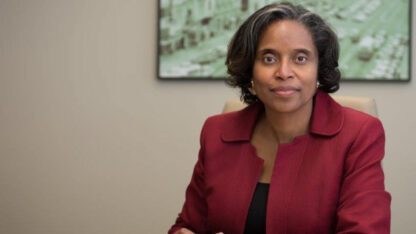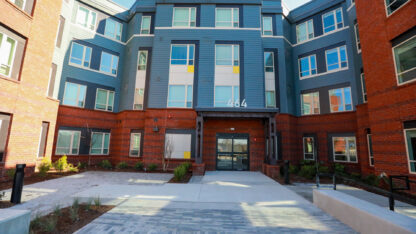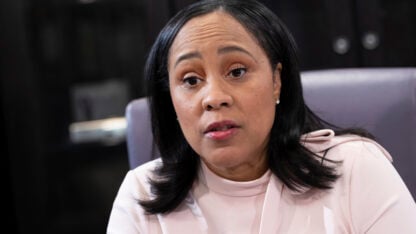After-School Program Seeks to Engage
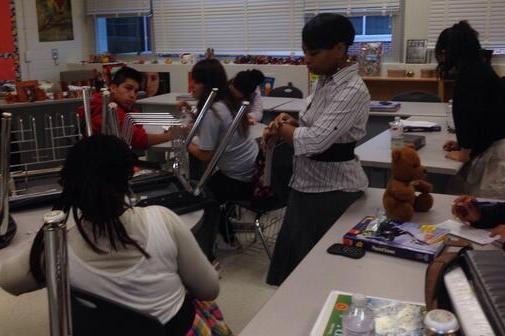
Martha Dalton/WABE News
After-school programs for middle and high school students often provide additional academic support. One after-school program in metro Atlanta is also an example of how community groups and business work together to improve educational outcomes. At one school in DeKalb County, the hope is the after school program will pay big dividends.
Hear the audio version of this story.
At Cross Keys high school, Kimberly Ford is a science teacher by day and a drama teacher after school. She is shorter than some of the students. But you barely notice, thanks to her expressive voice and larger-than-life personality. On this day, she showed kids how to introduce themselves.
“I am Miss K. Ford,” she says. “And I teach science.”
When the students get up to try, some are shy, others can’t stop laughing. But Ms. Ford doesn’t let them off the hook.
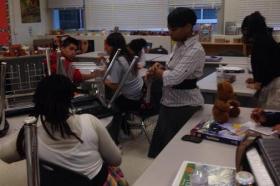
“Just introduce yourself,” she says. “You don’t have to be like me or her.”
Student: “Hi guys. My name is Belen. I’m a really fun person to be with. I’m really short.”
Ford: “So? That’s called ‘fun size.’”
The program is called College and Beyond. It’s offered by Atlanta’s Latin American Association. The program serves low-income students at this high school and Sequoyah Middle School, and has a summer session. All of that together makes the program unique, according to Comcast Executive Vice President David Cohen.
“The LAA after-school program is really serving, in a more comprehensive fashion, the needs of this particular, vulnerable community to a greater extent than most of our non-profits are serving their communities,” Cohen says.
Comcast has provided free computers and discounted Internet access to 56 families in the program. Those families are mainly Latino. LAA president Jeffrey Tapia says the program aims to ensure students are well-prepared for life after high school.
“When you look at the demographics of Georgia, and actually for the whole United States, you see that by the year 2020, ¾ of the growth in the workforce development is Latino,” Tapia says. “So, clearly we must invest in our youth.”
The investments are also in laptops, like the one Cross Keys student Belen Garcia used to write an essay during the after school program.
“A lot of our homework, especially for English, is computer-based, and we’re going to have to write essays and turn them in via a website,” she says.
Kids, like Garcia, requested some of the classes in the program. Jonathan Delgado says even on the first day of the program’s drama class, he already knew his goal.
“I expect to be more open about myself or crazy,” Delgado says. “Most times I tend to just sit down and be quiet.”
Their teacher, Kimberly Ford, says students will likely gain confidence. But she also points out the skills they learn in drama class will translate to other areas.
“Education now is so standards-based,” she says. “But if you have someone that has to memorize music, they have to memorize a script, they have to know what emotion is, they have to understand and think on their feet. That’s a skill that is critical not only in school but in the work place.”
That’s the program’s long-term goal. Mario Bocerra, a middle schooler in the program, says he knows he knows he wants to go to college. He just hasn’t decided on a profession yet.
“I'm still thinking,” he says. “I just know that I want to get a high degree and get a good job.”
Comcast and the LAA hope all the students in the program are thinking the same way.
9(MDAxODM0MDY4MDEyMTY4NDA3MzI3YjkzMw004))
